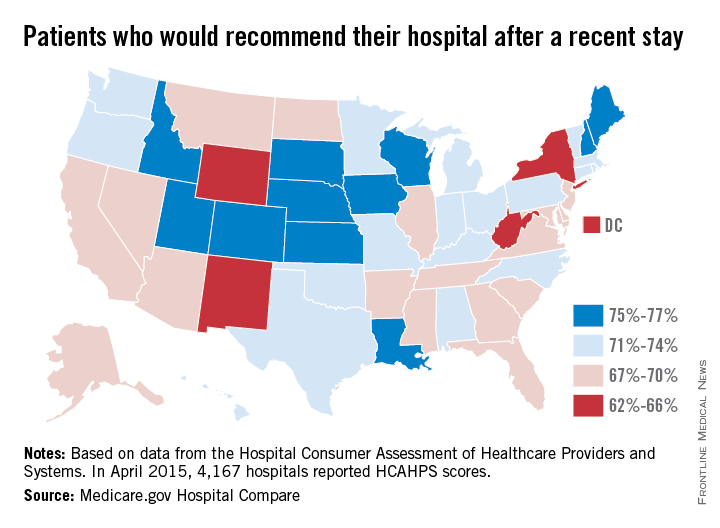New Mexico and Washington, D.C., share a dubious distinction in the area of patients’ perceptions of the quality of their hospitals, according to a Centers for Medicare & Medicaid Services database.
The database, called “Hospital Compare,” found that just 62% of recent patients would recommend a hospital in either of those two jurisdictions. Rounding out the bottom five were Wyoming at 65%, and New York and West Virginia, both at 66%. At the positive end, four states had a hospital recommendation rate of 77% – South Dakota, Utah, Maine, and Nebraska – and three states had a rate of 76% – Louisiana, New Hampshire, and Kansas. The national recommendation rate was 71%.
Although New Mexico and Washington, D.C., hospitals had the same recommendation rate, D.C. hospitals scored significantly worse on the other 10 items from the Hospital Consumer Assessment of Healthcare Providers and Systems (HCAHPS) survey used by Hospital Compare. Of the 11 measured items, no score for the city of Washington came within 5 percentage points of the national average, while 9 of 11 scores were within 5 percentage points in New Mexico, the Hospital Compare data show.
Nationwide, the lowest score among the 11 patient satisfaction measures went to “Patients who ‘strongly agree’ they understood their care when they left the hospital,” which got a 52% – 10 percentage points fewer than the next lowest item. The highest satisfaction score was the 86% tallied by “Patients who reported that yes, they were given information about what to do during their recovery at home.”
The Hospital Compare data were gathered from 4,167 hospitals reporting an HCAHPS score.


